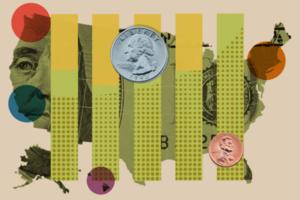Entertainment
/ArcaMax

What kinds of small businesses are doing the best?
Small businesses are mighty. They're considered the backbone of the American economy and the heartbeat of many communities.
While they're particularly vulnerable to market headwinds—think the economic fallout from the COVID-19 pandemic, rising inflation, and the impact of tariffs on parts and labor—small businesses are also more nimble ...Read more

To show employee appreciation and build morale in 2025, think beyond free pizza and beer
At the fitness media company Personal Trainer Development Center, owner Jonathan Goodman and his team wanted to show appreciation for a hard-working editorial director, who joked about landing a sneaker endorsement deal, despite not being a big-name athlete.
So Goodman and his team made him a mock-up of a Nike endorsement contract, which ...Read more

5 investment scams millennials fall for and how to avoid them
Age is just a number, particularly for online criminals. Scammers don't care how old someone is—if they can dupe someone into giving them money, that's all that matters.
While always a problem, the proliferation of online scams exploded during the COVID-19 pandemic. Between 2019 and 2020, scam complaints to the FBI increased by 69% to ...Read more

Learn about what service dogs can do, and what it takes to certify and protect them
Some dogs are more than man's best friend. Service dogs perform critical functions to keep their owners safe, healthy, and independent.
Also called "assistance dogs," these specially trained animals perform critical daily tasks for owners who have mobility, sensory, psychiatric, and developmental disabilities. While laws surrounding service ...Read more

The 5 most common AI capabilities adopted by businesses, and how they may impact employees
Whether it's automating tedious processes or offering round-the-clock customer support via chatbots, artificial intelligence models are transforming how businesses operate. As the potential of AI continues to unfold, companies are taking note: The AI market is projected to surge to $2 trillion by 2030, marking a 20-fold increase in under a ...Read more

Tick bites are on the rise. Here's how to protect yourself.
Longer summers and shorter winters in North America mean more warm days throughout the year. These conditions are also creating longer life cycles for native arachnids, including bloodsucking ticks.
During the height of tick season in 2024, emergency departments saw 112 tick bites per 100,000 visits—the highest level since May 2019, ...Read more

Chronic pain is extremely common. What is it, and why is it so hard for many Americans to get relief?
Muscle and joint aches. Shooting, stinging, or burning pain. Ongoing stiffness or squeezing sensations, pain so persistent and intense that it leads to constant fatigue, anxiety, depression, and insomnia.
These and other symptoms of chronic pain are often associated with older adults, but chronic pain is a pervasive public health issue that ...Read more

Retirement, interrupted: Why those over 55 are a fast-growing segment of the workforce
Joan Madden-Ceballos, a 65-year-old health care administrator, has a working life in California many would envy. Her work is flexible, fulfilling, and something she enjoys going back to day after day. "I'm a baby boomer, so work is sort of ingrained in our lives," she told Vox.
While it may sound unusual for some to work past what many ...Read more

The most and least hospitable states for electric vehicle ownership
The number of people purchasing and using electric vehicles in the United States reached record levels in 2024, thanks to a combination of federal, state, and local incentives and growing awareness about the impact of greenhouse gases on climate change. However, recent moves by the Trump administration to curb incentives to buy EVs, such as tax...Read more

Top 10 crypto disasters explained, and how to protect yourself
Bitcoin surged past $100,000 in early December as investors and boosters salivated. They likely envisioned a friendlier regulatory environment under President Donald Trump, who declared in an August post on the social platform X that the U.S. would be "the crypto capital of the planet."
But before investors count their chickens or fork over ...Read more

The Great Wealth Transfer in 3 charts
More than $80 trillion over 20 years—that's the scale of the coming wave of wealth expected to trickle down to younger Americans over the next two decades.
Dubbed the Great Wealth Transfer, the shift of assets from older generations to millennials and Generation Z may profoundly reshape financial influence and spending priorities in ...Read more

5 interior design trends that are making major comebacks
The old adage that everything old is new again almost always proves true when it comes to fashion and design—just wait long enough, and what's cool will inevitably cycle back. Thought you'd never see the return of low-waisted jeans or built-in appliances in shades of avocado green? Think again. The cyclical nature of trends follows what ...Read more

Is your phone actually listening to you? We fact-checked 5 surveillance myths.
Mirrors that track workout reps, pillows that silence snores—smart technology is constantly evolving. Our phones are some of the smartest and most ubiquitous. By 2024, 9 in 10 Americans owned a smartphone, up from just 35% in 2011, according to Pew Research Center.
While these innovations offer convenience, they often come with a hidden ...Read more

Top pizza chains in the US
Pizza has been a staple of the American diet since the late 19th century and has grown into a multibillion-dollar industry. How much do Americans love pizza? $50 billion in estimated sales for 2024 should give you a rough idea. What's more, that number is expected to grow, with technology research company Technavio projecting the global pizza ...Read more

What a difference a dollar makes: These are the metros where your paycheck stretches the furthest
It's getting hard out there to be an everyday consumer. Prices are up, and so is unemployment. President Donald Trump's shifting positions on tariffs are contributing to a haze of economic uncertainty. Bracing for impact, shoppers are trimming their grocery runs and seeking discounts, and their confidence in the economy is plunging, according ...Read more

In an age of social isolation, here's the surprising way education shapes friendships
Romantic love may come and go, but finding the Thelma to your Louise is forever.
Friends—besties, squads, workplace buddies, college roommates—play a unique role in our lives. They're companions and confidants; they share our stories and know us better than we know ourselves. Whether they show up in real life or drop the perfect response...Read more

How do hurricanes affect baby names?
When a hurricane makes landfall, its effects go beyond the physical devastation and disruption to communities in its path. Storms leave lasting societal imprints on many facets of life—even what parents name their children.
Spokeo compared data from the National Oceanic and Atmospheric Administration and Social Security Administration to ...Read more

Most popular TV shows on Netflix last week
It's been 12 years since Netflix changed the way we watch television with the release of its first original series, "Lilyhammer" and "House of Cards," and nothing has been the same since. The binge model, where all episodes are released at once, upended our viewing patterns and got us hooked on new shows in a way we hadn't been before—who ...Read more

Most popular movies on Netflix last week
When Netflix began as a service to mail DVDs to your home, none of us could have imagined what it would one day become. Of course, people now know Netflix as one of the most successful streaming services, as well as the producer of a number of smash hit original TV series and movies. The earliest Netflix films may not have broken through, but...Read more

Does your neighborhood sound expensive? Here's how names impact real estate prices.
In 2012, real estate agents in Oakland, California, began listing houses under a new neighborhood called "NOBE." The acronym—a conjunction meant to represent the North Oakland, South Berkeley, and East Emeryville neighborhoods—quickly spread online, irking its residents. A marketing tool to attract affluent homebuyers and renters, NOBE ...Read more











